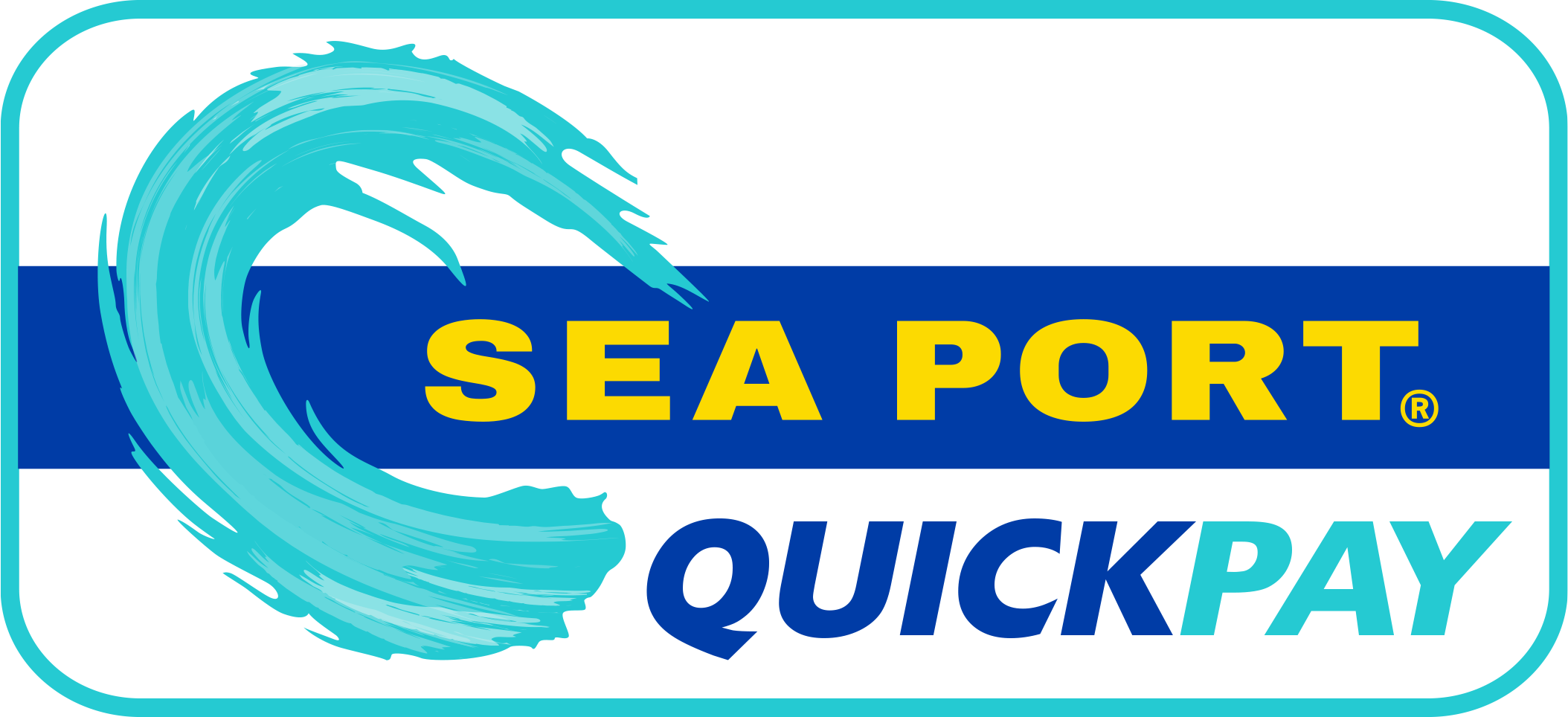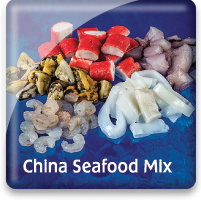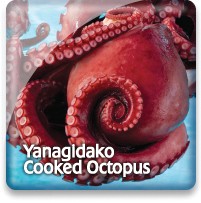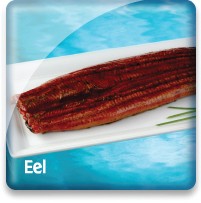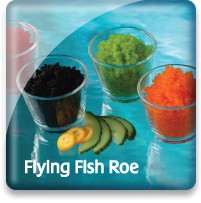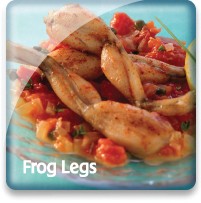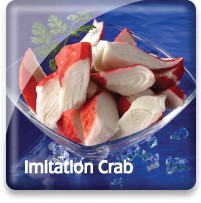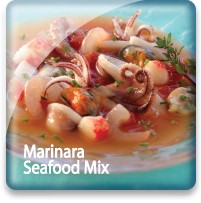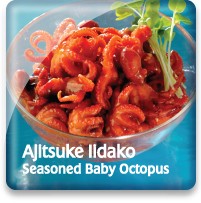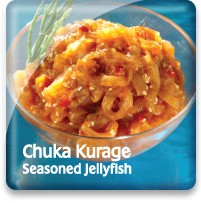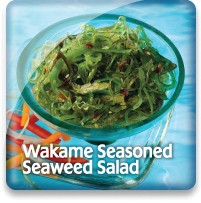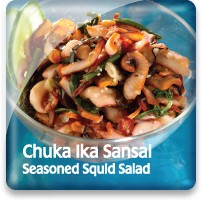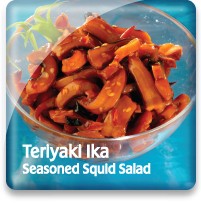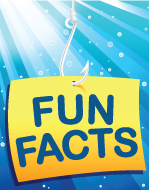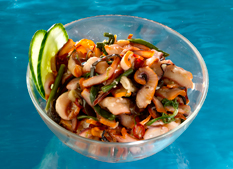
Seasoned Squid Salad (Chuka Ika)

Market Name: Eating QualitiesOur Seasoned squid salad is very nutritious and tasty. It can stand alone as a healthy side dish or be added to soups, other salads, and casseroles.
   |
Description & CharacteristicsOur Seasoned Squid Salad (Chuka Ika Sansai) is prepared using traditional Japanese Chinese cuisine flavorings and methods. The flavor of ginger helps tie together the various flavors, spices, crisp vegatables, and sliced squid to produce a delicious fully cooked entrée that is immediately ready to eat upon thawing. This is an excellent appetizer or side dish.
Humboldt squid’s life span is only one year, but they grow quickly to 6ft long and 100lbs.
Other ResourcesMarine Resource Fact Sheet |
Handling Instructions for Seasoned Squid Salad (Chuka Ika)
Seasoned squid salad should be stored frozen at or below 0°F (-18°C) and then thawed properly when ready eat.
Thawing Seasoned Squid Salad (Chuka Ika)
Our squid salad comes vacuumed sealed in a bag that has been placed inside of a tub. The vacuumed bag seal must first be broken before thawing can commence. The FDA requires that you never thaw vacuumed packed seafood in the refrigerator due to the fact that the anaerobic (airless) environment may allow for the growth of the bacteria Clostridium botulinum that could cause botulism food poisoning. They recommend that you break the vacuum bag’s seal to eliminate this risk and then proceed with the proper thawing. Once the vacuum seal has been broken the bag can remain in the tub while the product thaws under refrigeration between 35 and 40°F (1.7 to 4 degrees C). Complete thawing is generally accomplished within 24-48 hours.
Important Instructions for Seasoned Squid Salad (Chuka Ika)
Upon thawing, the squid salad is ready to eat. The refrigerated shelf life is 3-5 days when held under the proper refrigerated temperature range of 35 to 40°F.
Eating Tips
Our Seasoned squid salad is very nutritious and tasty. It can stand alone as a healthy side dish or be added to soups, other salads, and casseroles.
Taiwan
The island of Tawian, shaped like a tobacco leaf, nation, is located off the coast of China where it is officially part of the Republic of China. Some 23 million people live in an area that is just 245 miles long and 89.5 miles wide, making Taiwan the second-most densely populated country in the world.
While it offers few opportunities for recreational fishing, Taiwan’s commercial fishing industry is well-established, with a fleet of vessels that fish around the world for tuna, sharks, herring, reef fish, horse mackerel, sardines, squid and octopus. Aquaculture is also an important new industry in Tawian, with freshwater farms growing shrimp farms, and tilapia, and marine farms growing shellfish such as clams and oysters.
Go Blue! Seafood Sustainability Spectrum*Click here for an explanation of our Sustainability Spectrum 
Sustainability AssessmentBecause most squid species have relatively short life spans and grow to reproductive age quickly, their populations are thought to be somewhat resilient to moderate levels of fishing pressure. The short life span and unpredictable nature of factors such as egg survival and the influence of environmental conditions make it difficult to assess squid populations using conventional stock assessment methods. In many cases, effective management of squid fisheries is lacking. The Humboldt squid, Dosidicus gigas that is sourced primarily from Peru for use in Sea Port’s Squid Salads is especially hard to manage because they appear very sporadically all the way from the southern tip of South America to Alaska. They spend their days nearly a half a mile under the water and rise to the surface to feed at night at which time they are jig caught by fishermen. Jigging for Humboldt squid is highly selective and therefore reduces bycatch and damage to the physical marine ecosystem.
Environmental Impact: ModerateBecause population fluctuations seem to be closely tied with environmental factors, year to year squid biomass is difficult to accurately predict. Management of the resource is inadequate in many major squid fisheries and Humboldt squid is particularly difficult to manage due to its multi-jurisdictional range and unknown life cycle.
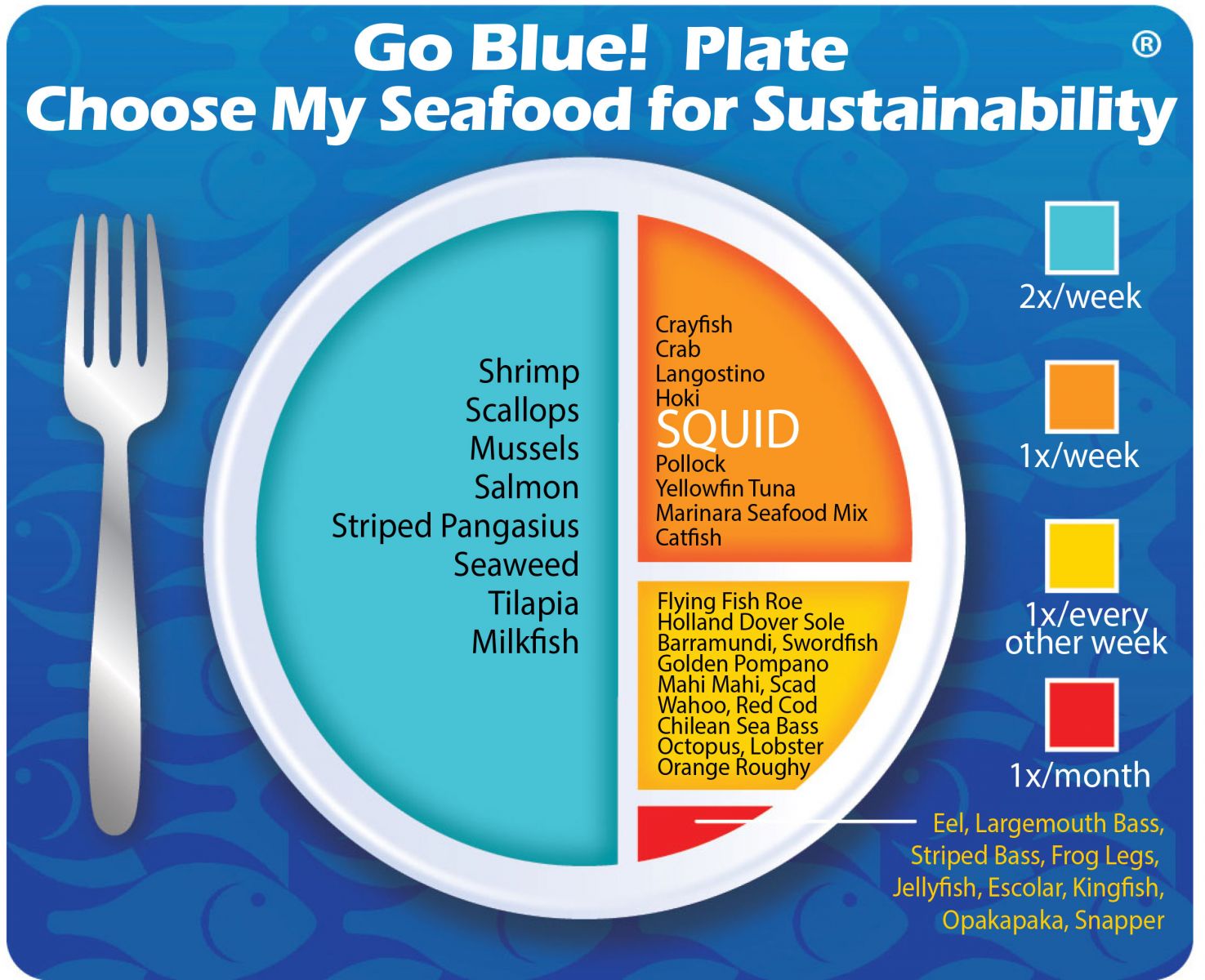
Sustainability Improvements NeededImprovements in the amount and types of data collected are needed in order to accurately establish fisheries trends and further develop stock assessment models specific to Humboldt squid.
Actions that Sea Port is UndertakingSea Port is requiring that their suppliers provide fishing vessel identification (when available), catch methodology, and catch area information. In doing so, Sea Port hopes to encourage the squid fishery to collect additional critical catch and resource data where none currently exist. This increased availability of data will allow for fishery management schemes to be establish or improved upon to assure the sustainability of the squid fishery. Sea Port believes that, in aggregate, choosing from a diverse variety of seafood is better for sustaining the world’s seafood resources and that our Squid Salad entrée should be a part of this variety.
We created the sustainability assessments for each of our seafood items in order to reveal the existing and potential environmental impacts and risks that are associated with producing them for human consumption. This allowed us to establish the starting position for each of our seafood items along our progressive Go Blue! Seafood Sustainability Spectrum®. These assessments are only a single snapshot in time and because of this, we will continue to assess and update the critical sustainability needs associated with our supply sources and issue updates to the Go Blue! Seafood Sustainability Spectrum® as needed. There is a growing global awareness for the need to assure the sustainability of farmed and wild caught seafood and because of this; all around the world positive changes are rapidly occurring at all levels of the seafood supply chain. We will continue to spread this growing awareness and work with our many industry partners to improve the sustainability of all seafood, which we believe is the ideal protein of choice to feed an ever growing world population. Our Go Blue! Seafood Sustainability Spectrum® serves as our compass and yardstick as we strive to move all our products forward to becoming more sustainable. Please join us in this committed quest and Catch Our Wave® to sustainability by choosing a diverse variety of responsibly produced seafood as part of your diet.
|

